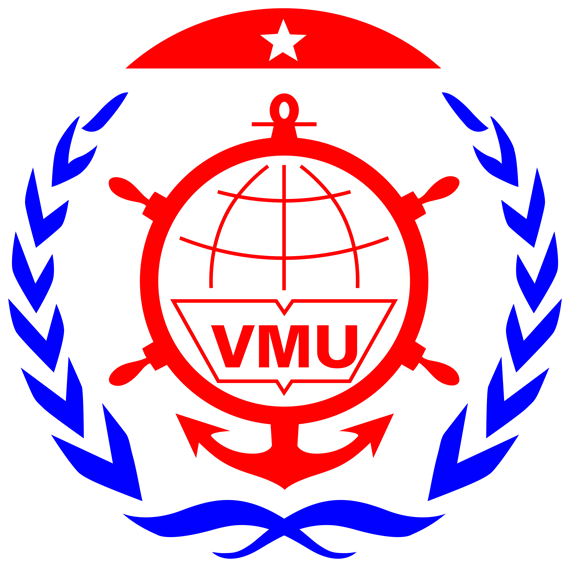1. Introduction
|
Program title: |
Bachelor of Automotive Engineering |
|
Graduation degree: |
Bachelor's degree |
|
Study model: |
Full-time |
|
Total credits: |
139 |
|
Used language: |
Vietnamese |
|
Training duration: |
4 years (8 semesters) |
|
Responsible Faculty: |
School of Mechanical Engineering |
|
Website: |
|
|
Address: |
Room 713, 7rd floor A6 Building, Vietnam Maritime University 484 Lach Tray - Le Chan - Hai Phong |
The main objective of the program is to train highly skilled professionals who are capable of designing, manufacturing, implementing, operating and maintaining systems in the automotive industry and other related industries. Graduates of this program are able to form ideas, design, deploy and operate specialized equipment and systems in Automotive Engineering; dynamic, creative, adaptable to all working environments, capable of competing with human resources in the Asia-Pacific region, serving the cause of national construction, protection and international integration.
The Bachelor of Automotive Engineering program at Vietnam Maritime University provides a comprehensive education to help students prepare for a successful career in the automotive industry. Bachelors graduating from the Automotive Engineering program are fully equipped with knowledge and skills, meeting the requirements for job positions such as design, manufacturing, assembly, repair, and exploitation of automobiles; Automobile, construction machinery, and specialized machinery business; Vehicle and specialized vehicle inspection and testing; Researchers and lecturers at training and research institutions in mechanical engineering in general, automotive engineering, and transportation in particular, working at universities, colleges, and vocational schools with majors related to mechanical engineering and automotive engineering.
2. Curriculum
The Bachelor of Automotive Engineering program is organized into 8 semesters with comprehensive training content combining theory and practice. The curriculum is designed to equip students with fundamental engineering principles, specialized technical expertise, and hands-on training essential for professional practice in the field of automotive engineering.
In Semester I, students acquire foundational knowledge in core subjects such as Introduction to Engineering, Calculus, and Physics 1, which provide essential analytical and problem-solving skills. General Law introduces fundamental legal concepts, while Technical Chemistry explores the chemical principles relevant to engineering applications. Students may also select elective courses, such as Environmental Protection and Sustainability and Soft Skills 1, to enhance their environmental awareness and communication abilities.
In Semester II builds upon this foundation with courses such as Marxist-Leninist Philosophy, Descriptive Geometry & Technical Drawing, and Theoretical Mechanics, which develop spatial visualization, technical drawing, and mechanical problem-solving skills. Industrial Electricity and Heat Engineering provide essential knowledge of electrical systems and thermodynamics, which are fundamental to refrigeration engineering. Elective options include Basic English 1 and Office Informatics, which strengthen language proficiency and digital literacy.
In Semester III, students engage with more advanced topics, including Theory of Machine and Mechanisms and Strength of Materials, which examine the principles of mechanical motion and material behavior under stress. Mechanical Drawing and CAD enhances technical design competencies, while Materials Science and Engineering and Automatic Control Engineering introduce students to material selection and system automation. Elective courses, such as General English 2 and Business Management, provide opportunities for interdisciplinary learning.
In Semester IV continues the progression into specialized topics, with courses such as Fundamental of Machine Design, Tolerances & Measuring Instrumentation Engineering and Introduction to Manufacturing Processes. In addition to mechanical engineering-related subjects, students begin their introduction to the discipline through the Internal Combustion Engine module. For elective courses, students hone their administrative and management skills through the Transport Management and Production Manager modules.
In Semester V, students continue to study general subjects on basic mechanical engineering such as Assignment of Fundamental of Machine design, while also studying Applied mathematics, allowing students to have a foundation in calculating and modeling automotive engineering systems in subsequent courses. For the specialized knowledge block, students begin to receive in-depth training on the structure and structure of automobiles, while also being exposed to technologies in automobile design, manufacturing and assembly through modules such as Automotive structure, Theory of Automotive Technology, Automotive Chassis Technology, Specialized Vehicles and Automotive Manufacturing And Assembly Technology. In particular, in this semester, students will directly practice the stages of turning, cold machining and welding through the Mechanical Machine Tool Practice.
In Semester VI continues the progression into specialized topics, with courses such as Applied Hydraulics and Pneumatics, CAD/CAM and CNC. Students continue to receive in-depth training in the field of automotive engineering through courses such as Technology of Automotive Part Manufacturing, Automotive Design and Calculation and Applied Software in Automotive Engineering.
In Semester VII, students engage with system-level engineering through courses such as Automotive Repair and Maintenance, Automotive Electrical Equipment and Monitoring Control System, Electric vehicles, Automotive Diagnostic Techniques. Elective courses, including Automotive Coating Technology and Creative Entrepreneurship, provide additional professional development opportunities. In Semester VII, students will directly survey and participate in the production process at enterprises in the fields of technical services, manufacturing, assembly and maintenance of automobiles during the Cooperative Training.
In the final semester, students synthesize the knowledge acquired during their studies and practical experiences, thereby selecting, analyzing and implementing a graduation project or completing equivalent graduation topics such as Automotive powertrain and New technology in automotive engineering.
After completing the training program, graduates will have a full grasp of knowledge in the field of automotive engineering, equipped with communication and situation handling skills, and be able to work in the field of automotive engineering and related industries.
